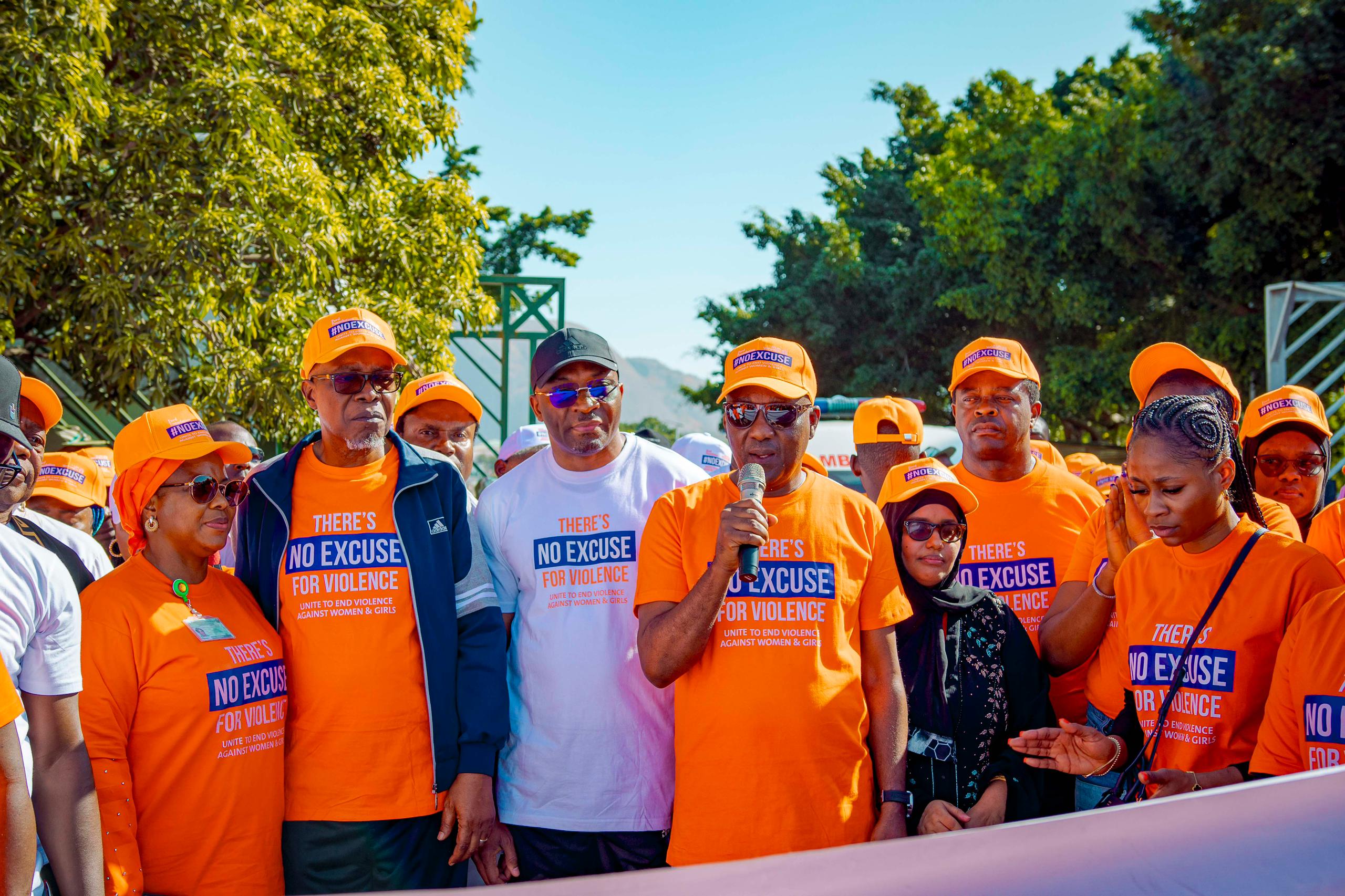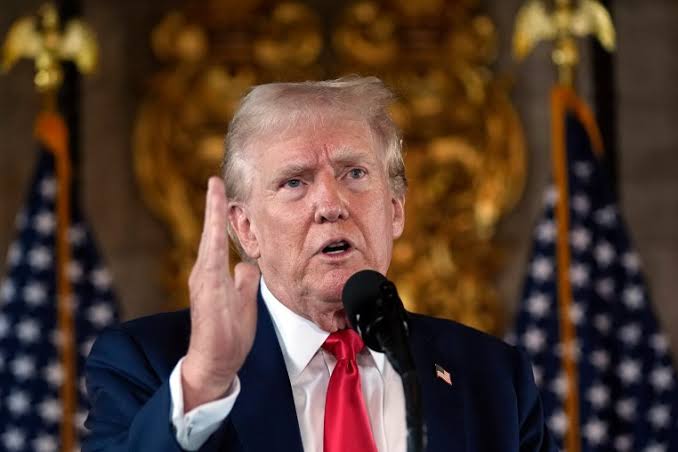News
Reps Investigates Alleged Importation Of Adulterated Petrol, Price Hike, Others

News
NNPC’s failure to fix refineries might encourage Dangote to be monopolistic

Despite bickering between the Dangote Petrochemical Industry and the Nigerian National Petroleum Corporation Limited (NNPCL), a group of Nigerians in Diaspora has entertained fears that the leading regulatory agency might be secretly encouraging Dangote Refinery to be monopolistic in oil distribution in the country.
Dr. Donald Illiya, Global President of Nigerians in Diaspora Movement
(NDM), in a statement signed Monday morning from London, United Kingdom, said the public faceoffs between the NNPCL and Dangote refinery is confusing, and might be to distract Nigerians, while the regulatory body encourages Dangote to be the sole oil distributor in Nigeria, by suppressing the state owned local refineries and hold them continually in comatose.
“The Nigerians in Diaspora Movement have watched with perplexity the choreographed performance between the Nigerian National Petroleum Company Limited (NNPCL) and Dangote Petrochemicals Refinery, which is meant to keep exploiting Nigerians by making them pay more than reasonable pump prices for refined petroleum products.
“For us, taking in the state of the nation’s economy and the ongoing cost of living crisis, we are of the view that Nigeria’s fate is tied to the state of government-owned refineries, which must be made functional to cause a consequential drop in the prices of fuel and a positive knock-off effect on the cost of living.
“From our review of the murky situations around the refining, importation, supply and pricing of petroleum products, we are constrained to conclude that NNPCL and its officials are aiding Dangote Refinery to emerge as a monopoly by failing to revive domestic refineries while obscuring this fact by being publicly hostile to each other”, the statement said.
The group, while asserting high level of corruption in the energy sector, said, despite spending over N17 trillion to rehabilitate the Port Harcourt, Warri and Kaduna refineries from 2002 to 2022, and still spending more, even under the present regime of President Bola Ahmed Tinubu, the local refineries have remained comatose.
“We are concerned that the unfolding drama is part of a larger plot to conceal the fact that NNPCL has kept its track record as a cesspit of corruption, which is most prominent in the phantom turnaround maintenance of the government-owned refineries. From when NNPCL Group CEO, Mele Kyari assumed office in July 2019, the administration of President Muhammadu Buhari approved $1.5 billion for the rehabilitation of the Kaduna, Port Harcourt, and Warri refineries. Another N54.66 billion was spent on refinery rehabilitation from January to June 2022.
“More funds have disappeared into the private coffers of those managing NNPCL such that additional monies have been spent even under the current government, bringing the total expenditure on refinery repairs to approximately N17 trillion on turnaround maintenance of the nation’s three refineries between 2002 and 2022.
“The only output Nigerians have had from this huge expenditure are the ever-changing delivery dates for the refineries to resume operation. In November 2023 a December 2023 target date was announced for Port Harcourt Refinery, and by December of that year, March 2024 was announced as a new date only for this to be altered at least three other times.
“The completion of repairs on Kaduna Refinery was set for the first quarter of 2024, but the refinery has only produced stories on why it is being delayed. Warri Refinery has not fared any better, as a similar first quarter of 2024 target date for commencement of operations, as announced by Mele Kyari, turned out to be folklore”, the group added.
They are of the opinion that, “It is consequently plausible that the failure to make these refineries functional is beyond incompetence and the theft of the funds meant for repairing them. It is now glaring that the refineries are being kept moribund to create a favourable condition for the emergence of a monopoly. This is a tragic turn of events at a time when jurisdictions worldwide are taking bold steps to prevent predatory and monopolistic tendencies to protect citizens and businesses”.
Nigerians in Diaspora Movement, therefore, urged “President Bola Tinubu to take decisive steps to purge the rot in NNPCL so that domestic refineries can resume production and ward off the dangers of succumbing to a monopoly, which also presents a single point of failure for the nation’s fuel supply”.
News
16 Days of Activism: Speaker Abbas Decries Increasing Violence Against Women

News
Trump set to sign Executive Order to flush out transgender personnel from US military

President-elect, Donald Trump, is set to sign an executive order that would remove all transgender members from the United States military.
It was learnt that the development has intensified concerns within the LGBTQ+ community.
The report claimed that the state officials had stated that transgender personnel would be discharged on medical grounds, deeming them “unfit” to serve.
Recall that during Trump’s first term as president, he introduced a similar policy that prohibited transgender individuals from joining the armed forces while allowing those already enlisted to remain in their roles.
After Trump left office, President Joe Biden had overturned the military ban in his first week as president in 2021, issuing an executive order to restore transgender individuals’ right to serve openly. However, with Trump’s potential return to the White House, transgender rights in the US may face renewed challenges.
However, the current proposal, as reported, would extend to removing all transgender service members, regardless of their current status. It is anticipated that the executive order will be issued on Trump’s first day in office, January 20 next year.
If signed, Trump’s new directive could be broader and more contentious than the policy he implemented during his first term. What would be its impact on transgender personnel serving in US military.
Reports indicated that approximately 15,000 transgender individuals are actively serving in the US military.
This is coming amid moves by US congress to stop irst transgender lawmaker from using female restrooms and bathrooms in her new workplace.
US House Speaker Mike Johnson had expressed his support for the policy that tends to disregard transgender ideologies in the legislative arm.
“All single-sex facilities in the Capitol and House Office Buildings — such as restrooms, changing rooms, and locker rooms — are reserved for individuals of that biological sex,” the speaker said in a statement last Wednesday.
“It is important to note that each Member office has its own private restroom, and unisex restrooms are available throughout the Capitol. Women deserve women’s only spaces,” he added.
The move to prevent McBride from using the women’s facilities in the House was first initiated by Rep. Nancy Mace, R-S.C., who on Monday introduced a resolution to ban trans women from using women’s bathrooms inside the complex.
Mace said the resolution was “absolutely” in response to McBride, a Delaware Democrat, being elected to the House.
She took her anti-trans crusade even further on Wednesday, announcing a bill to ban trans people from using bathrooms that align with their gender in all federal buildings across the country. Neither of the resolutions have been brought to a House vote.
It is important to note that each Member office has its own private restroom, and unisex restrooms are available throughout the Capitol. Women deserve women’s only spaces,” he added.
The move to prevent McBride from using the women’s facilities in the House was first initiated by Rep. Nancy Mace, R-S.C., who on Monday introduced a resolution to ban trans women from using women’s bathrooms inside the complex.
Mace said the resolution was “absolutely” in response to McBride, a Delaware Democrat, being elected to the House.
She took her anti-trans crusade even further on Wednesday, announcing a bill to ban trans people from using bathrooms that align with their gender in all federal buildings across the country. Neither of the resolutions have been brought to a House vote.
-

 Metro24 hours ago
Metro24 hours agoBREAKING: UK Court Fines Popular Journalist David Hundeyin £95000 for Libel
-

 News22 hours ago
News22 hours agoObasanjo narrates how he escaped becoming drug addict
-

 News12 hours ago
News12 hours agoMany Pastors Are Not Enjoying Their Marriages Due To Wives’ Behaviours – Bamiloye
-

 News12 hours ago
News12 hours agoAbia bans unauthorised free medical outreaches
-

 Metro12 hours ago
Metro12 hours agoFarmer allegedly beats suspected thief to death in Ondo
-

 Metro12 hours ago
Metro12 hours agoArmy destroys 34 illegal refineries in Niger Delta
-

 Foreign13 hours ago
Foreign13 hours agoHezbollah launches largest attack on Israel, hits Ashdod naval base, Tel Aviv
-

 News22 hours ago
News22 hours agoWe saved $20bn after Petrol Subsidy Removal and FX Rate Reforms, Says Finance Minister








